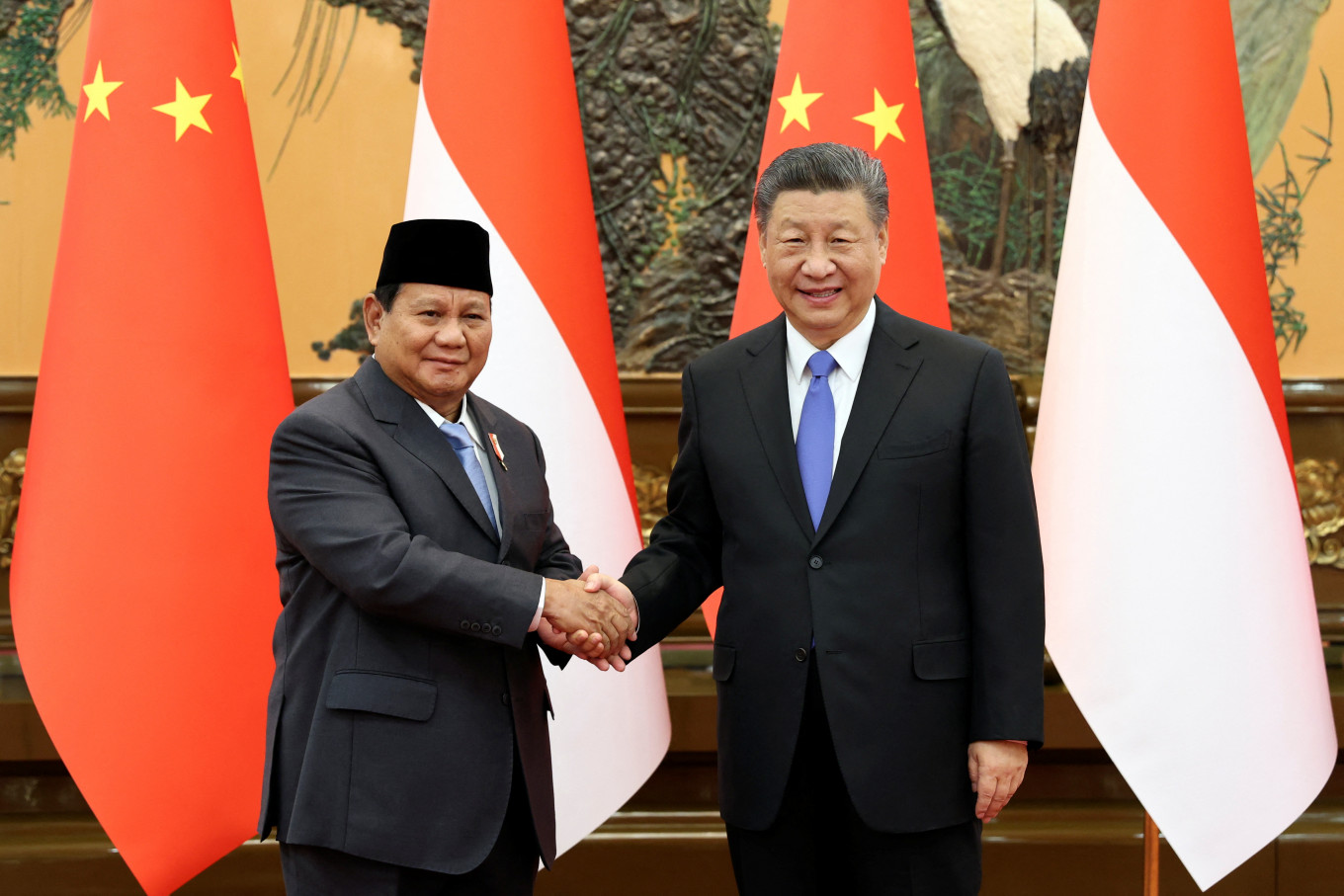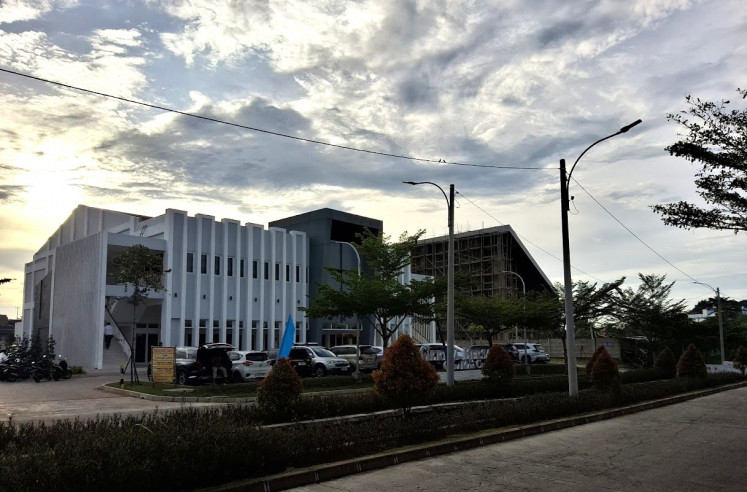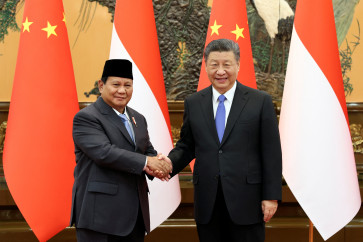Popular Reads
Top Results
Can't find what you're looking for?
View all search resultsPopular Reads
Top Results
Can't find what you're looking for?
View all search resultsPrabowo’s leadership: Sailing through US-China rivalry
Indonesia's leadership in ASEAN serves as both an asset and a vital strategy for addressing threats from the US and China.
Change text size
Gift Premium Articles
to Anyone
L
ast month, the United States conducted joint military exercises with Australia, the Philippines, Japan and New Zealand in the Exclusive Economic Zone (EEZ) of the Philippines, a region claimed by Beijing as part of the nine-dash line. At the same time, China deployed patrol ships in the waters around the Scarborough Shoal.
On Oct. 1, China's state news agency, Xinhua, reported a planned telephone conversation between Chinese Commerce Minister Wang Wentao and US Commerce Secretary Gina Raimondo. One of the key topics to be discussed is the US decision to restrict Chinese electronic vehicles (EVs) from entering the US market. This policy is evidence of the trade war between the US and China, initiated by former president Donald Trump. As the two largest economies in the world, this trade war has global repercussions.
The US-China rivalry, as manifested in the trade war and heightened tensions in the South China Sea (SCS), has far-reaching impacts, from economic to security sectors. Since Indonesia is one of the affected countries, it is important to understand where Indonesia stands amid the great powers’ rivalry.
It is equally important to know how Indonesian academics view the opportunities and challenges Indonesia is facing amid the US-China competition.
Based on the data compiled using the Systematic Literature Review (SLR) method by the China Research Team at the Research Center for Politics- National Research and Innovation Agency (BRIN), 52 percent of 62 articles showed that Indonesian academics view the US-China squabbling, especially in the SCS, as a threat to Indonesia. Only 23 percent consider the rivalry an opportunity for Indonesia. The remaining 26 percent see the rivalry as both a threat and an opportunity.
Concerns over the use of nuclear weapons in Southeast Asia cannot be underestimated. The formation of the trilateral security pact among Australia, the United Kingdom and the US (AUKUS) allows nuclear-armed submarines to pass through the SCS, thus increasing regional tensions. Additionally, the potential for open military conflict between the two great powers in the SCS is a primary concern for Indonesian academics.
In the economic sector, Indonesian academics assess that the US-China trade war could cause instability in international trade, including a decline in Indonesia's export value. However, Indonesia also has the opportunity to capitalize on it, especially in attracting investment from companies looking to relocate their manufacturing bases from China. This can boost Indonesia's economy, create jobs and fill the market gap between the two countries.



















